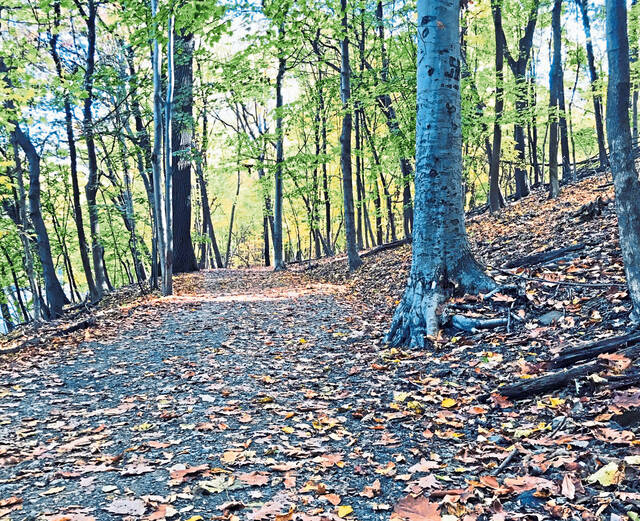Pittsburgh’s Frick Park and B’nai Israel Synagogue now are recognized with historic designation, and the city is considering designating a cemetery as historic for the first time.
City Council on Tuesday unanimously approved historic recognition for the park and the synagogue after the city’s Planning Commission and Historic Review Commission had such designation for the sites.
B’nai Israel Synagogue, located on North Negley Avenue in the city’s Garfield neighborhood, was recently redeveloped into a 45-unit, mixed-income housing complex dubbed The Carina. Boston-based Beacon Communities, which owns the site, nominated the former synagogue for historic designation.
The former synagogue and school was built in the 1920s, according to Sarah Quinn, with Pittsburgh’s Department of City Planning. The Byzantine-style building closed as a synagogue in 1969, she said, but “maintains its character-defining features.”
The 644-acre Frick Park — which stretches into the city’s Swisshelm Park, Squirrel Hill South, Regent Square and Point Breeze neighborhoods — is a “visual landmark,” Quinn said.
Pittsburgh native and industrialist Henry Clay Frick donated the first 151 acres of the park to the city when he died in 1919. He left $2 million dedicated to expanding and maintaining the park, and the sprawling park has expanded several times since then.
The historic designation applies only to city-owned parkland and excludes any privately-owned property adjacent to the park. The designation does not change the way people use the park or how it can receive funding, Quinn said.
The city’s Planning Commission on Tuesday unanimously recommended City Council also designate as historic Beth Abraham Cemetery, located on Reedsdale Street in the city’s Overbrook neighborhood.
The cemetery was founded in 1891, according to Quinn. It is poised to become the first cemetery to receive the city’s historic designation.
When the cemetery first opened, Quinn said, it was located “way on the outside of town, and now we’ve grown around it.”
The cemetery grew over many years, she said, and reflects the waves of different immigrants who moved to the Pittsburgh area, including Lithuanians, Russians, Romanians and Polish Jews. People can trace the history through the evolving tombstone designs, she said.
Because this would be the first cemetery to receive historic designation, she said, the city had to develop a new management plan for historic cemeteries. New tombstones won’t need to get approval because it’s a historic site, she said, and historic review processes will only apply to gates, retaining walls and tombstones or graves that are at least 50 years old.
“It is so cared for and so loved,” Matthew Falcone, president of Preservation Pittsburgh, said of the site.
Related:
• B'Nai Israel Synagogue in Pittsburgh's Garfield recommended for historic designation• Pittsburgh's Frick Park being considered for historic designation
• $18.5M project offers mixed-rate apartments at former Garfield synagogue, school








